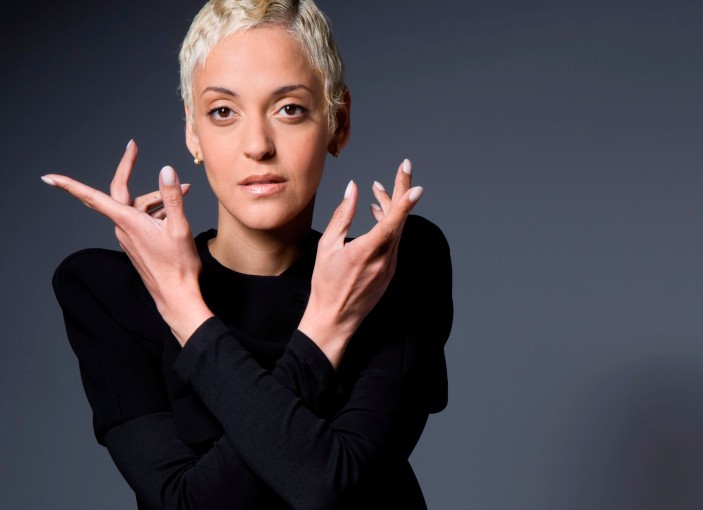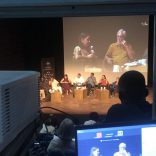Mozambique: People need to know who is attacking Cabo Delgado - Mia Couto
‘Mundo’: Fado star Mariza follows her family roots for new music

Mercury News / Marisa was born in Maputo, Mozambique
Singer Mariza has been the driving force in revitalizing the lamenting Portuguese musical genre fado, sometimes likened to the blues, a revival sparked by release of her first studio album in 2001.
She’s multiplied fado’s audience at home and abroad by expanding the tradition-bound repertoire with South American instrumentation and African cadences, adding dashes of vivid color to a style usually rendered in stark shades of grey and black. She even occasionally performs in gorgeous, brightly hued gowns, breaking with the fadista’s traditional black garb.
Christened Marisa dos Reis Nunes, Mariza isn’t the first fado star to incorporate new influences. Dulce Pontes has always included pop, classical and folk songs in her repertoire, and Ana Moura has rocked with the Rolling Stones. But no singer combines a command of the fado tradition with an international sensibility like Mariza, who performs at San Francisco Jazz’s Miner Auditorium Oct. 27-30 (U.S.).
“Her leadership in fado and Portuguese music is because she knows the roots better than anyone,” says Spanish composer/guitarist Javier Limón, who produced and arranged her new album “Mundo” (Nonesuch) and directs Berklee College of Music’s Mediterranean Music Institute. “That’s why she’s free to be in the vanguard of that music.”
What makes Mariza’s music so potent, beyond her astonishing voice, is that she draws her musical influences directly from her family’s roots. Born in Mozambique when the southeast African nation was part of Portugal’s fading and tattered empire, she moved to Lisbon’s historic Alfama district as a child, absorbing a love of fado from her father and pride in her African heritage from her mother.
“My mom was African and Portuguese and my great grandmother was from Goa,” says Mariza, 42, referring to the small Indian state that ended 450 years as a Portuguese colonial outpost in 1961. “She tried to show me a little bit of Africa so I don’t forget that part. I was listening to music from the Antilles, Bonga from Angola, Wazimbo from Mozambique, as well as Nina Simone, Frank Sinatra, Elis Regina.”
Her first new release in five years, “Mundo” digs deeper than ever before into her family’s far-flung history. While many tracks were written specifically for her by top Portuguese songwriters, she includes a gorgeous Cape Verdean morna and a milango made famous by Argentine tango legend Carlos Gardel. The song is something of a tribute to her paternal grandfather “who lived in Venezuela for 35 years, and when he arrived in Portugal he had a strong Spanish accent.”
“My father lived there, too, and sometimes he used to dance some milangos and tangos. When I was recording this album my father said, ‘There’s not a tango or milango that speaks about Portugal?’ I didn’t know, and then we found ‘Caprichosa,’ which talks about a whimsical girl who must be Portuguese.”
Mariza opens up the traditional emotional palette of fado, an ache-filled style preoccupied with loss, heartbreak and longing. But she has also artfully expanded fado’s instrumentation. Her band features José Manuel Neto on Portuguese guitar, Pedro Jóia on classical guitar, Angolan-Portuguese bassist Fernando “Yami” Araújo, and Vicky Marques, who plays drum set and cajón, the box-like percussion instrument.
“She was the first to include cajón in fado, and some touches of flamenco and jazz,” says Latin Grammy Award-winning producer Javier Limón, who has worked on such celebrated albums as Bebo Valdés and Diego El Cigala’s “Lágrimas Negras” and Paco de Lucía “Cositas Buenas.”
“I’ve produced 100 albums, and she is the best voice I ever worked with, the best voice in the world right now,” Limón continues. “It’s very easy to just sing fado, which has a beautiful repertoire. What’s difficult is to take the risk to evolve, using her African roots and new electronic sounds. Mariza is making fado even bigger, like what Paco de Lucía did with flamenco.”
Mariza’s campaign took a detour for several years after she married and started a family, which is why there was a five-year gap between 2010’s “Fado Tradicional” and “Mundo.” Like any working parent with a young child, she had to recalibrate her career after the arrival of her son.
“I had to figure out how I’m going to enjoy everything,” Mariza says. “As a mom and a singer I’ve got two difficult jobs. I can’t stop my baby from growing, and I found that I can’t stay at home or I’ll be a sad mom. It took a while for me to understand that I can’t stop singing.”












Leave a Reply
Be the First to Comment!
You must be logged in to post a comment.
You must be logged in to post a comment.